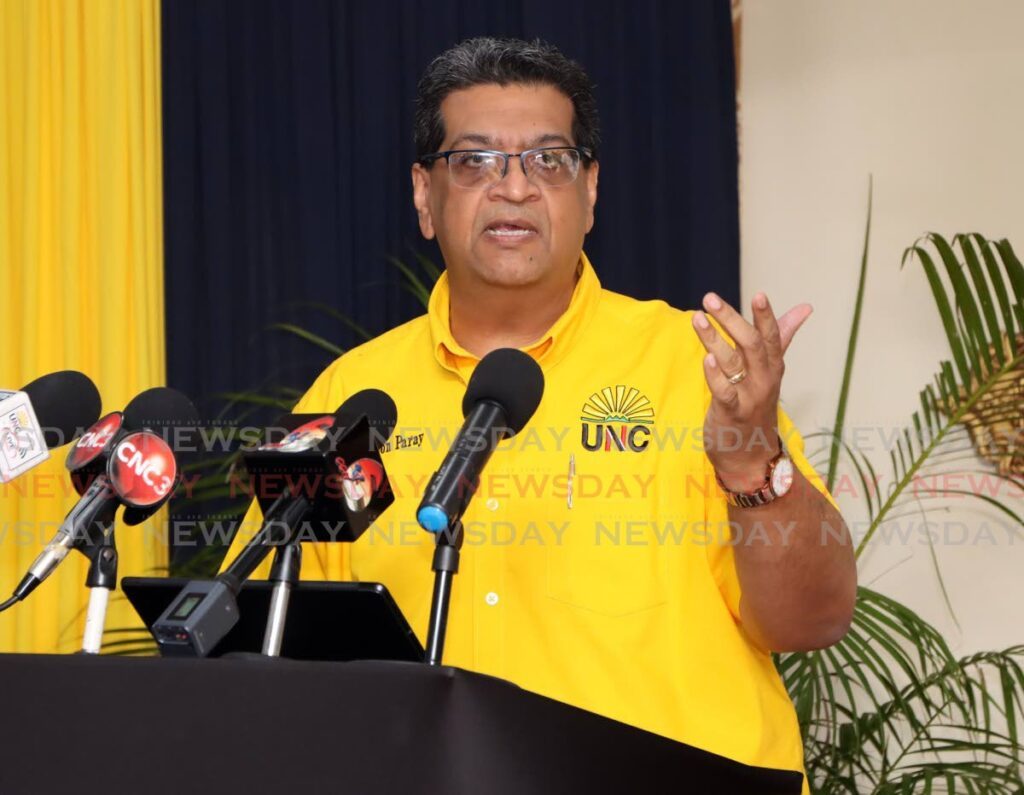Political loyalty vs standing on principle in age of social media

THE EDITOR: In today’s political landscape, a fine line exists between political loyalty and standing on principle. This tension has become even more pronounced with the rise of social media and the advent of instant fact-checking, placing political figures under constant public scrutiny.
In this era of heightened transparency, blind political loyalty, without the necessary grounding in principle, can swiftly lead to the erosion of personal credibility and the public's trust.
Political loyalty is often presented as a virtue, particularly within party structures that rely on cohesion to push through policies and sustain electoral strength.
At its best, loyalty signifies shared values and collective efforts toward the common good. However, the darker side of this loyalty emerges when it demands silence or complicity in the face of unethical behaviour, questionable decisions, or actions that conflict with the well-being of the public.
When political loyalty overrides personal convictions, it quickly leads to a loss of integrity, both in the eyes of the electorate and within the politician's own sense of self.
In this age of social media, where every statement, vote and decision can be scrutinised, shared, and dissected within minutes, the consequences of sacrificing principles for party politics are severe.
Voters are better informed and increasingly expect their representatives to be accountable and transparent. When a politician's actions are perceived as abandoning moral standing in favour of party loyalty, the public is quick to react, and the damage to personal credibility can be long-lasting.
This dynamic brings to light an important question for those in public life: Is it simply a choice between staying in the political arena or leaving if one cannot reconcile loyalty with principles?
I believe this is a more nuanced issue. Remaining in the political sphere does not always necessitate abandoning one's principles. Some of the most influential political leaders have been those who, despite party pressures, have stood firm on matters of principle, challenging policies or practices they deemed harmful or unjust.
Political life, by its very nature, involves compromise. However, that compromise should be on methods, not values.
A principled politician can navigate the complexities of political life by pushing back against unethical practices, advocating for better policies, and engaging in respectful dissent.
Loyalty to a party should never come at the expense of one’s loyalty to ethical principles or public trust.
That said, there are moments when the conflict between loyalty and principle becomes irreconcilable. When the values of the party or its actions conflict so deeply with a politician's personal convictions that they cannot, in good conscience, continue, stepping away from political life might be the only way to preserve one’s integrity.
In these cases, leaving the party or public office is not an admission of defeat; rather, it is a powerful statement that underscores a deep commitment to values and moral responsibility.
In the long term, loyalty should not be equated with blind obedience. Instead, it should mean a steadfast commitment to serving the public in line with both ethical principles and the common good.
The most enduring public figures are often those who prioritise integrity over short-term political gain. In today’s hyper-connected world, where transparency reigns supreme, such figures will find that standing on principle is not only the right choice, but also the one that secures lasting trust and respect.
As the public grows more informed and critical, politicians must remember that loyalty to their constituents and their own ethical compass will ultimately be more valuable than loyalty to any political party. The price of sacrificing personal principles for political allegiance can be too high, both for the individual and for the society they serve.
RUSHTON PARAY
MP, Mayaro

Comments
"Political loyalty vs standing on principle in age of social media"